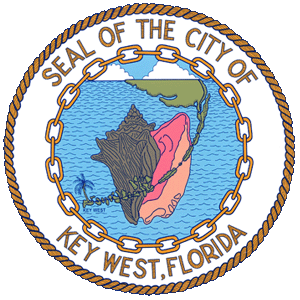Will federal pay subsidy help smaller hoteliers in Key West?
BY TERRY SCHMIDA
KONK LIFE STAFF WRITER
Though the unprecedented monsoon of federal bailout cash continues to overflow the vast cisterns of the already solvent – in industries from oil to cruise ships – it’s a different story for smaller Key West hoteliers facing an uncertain future.
The Paycheck Protection Program was signed into law by Congress to persuade business owners to retain employees they’d otherwise let go during an economic downturn.
And while nobody’s suggesting that hotel profits are more important than human lives, people do need an economy to return to, as protests across the country have underlined. The PPP has proved a relative disappointment to this key sector of the Key West economy, given the scale of the crisis.
“The Keys lodging and hotel industry has been completely shut down by this,” said Jodi Weinhofer, president of the Lodging Association of the Florida Keys and Key West. “While there are a few rooms being used for ‘necessary workers’ these are few and far between. Unlike restaurants there is no ability to do delivery or takeout for transient rooms. With the shut-down of hotels there is also the shutdown of restaurants, spas, marinas and retail on site. The sheer number of employees that have been furloughed is staggering.”
Among the problems with the PPP, which is being administered by local banks on behalf of the feds, is that accepting the money, after what’s been described as a cumbersome bureaucratic process, starts a clock ticking: Businesses that don’t retain their employees or reopen after 80 days will likely be required to reimburse the cash, according to Erik DeBoer, owner of the Marquesa Hotel, (and brother of Konk Life Publisher Guy deBoer.)
“The loans are supposed to be forgivable,” DeBoer said. “But the conditions have not been made clear, and there are a lot of strings attached. We’ve been encouraged to apply for this money, because they want to take the burden off the Unemployment Insurance program and keep small business open, but there are a lot of problems with the way this system has been set up.”
“In fact,” DeBoer continued, “unless there’s yet another funding bill pushed through Congress to top up a program that has already tallied close to $1 trillion, it’s probably too late now to apply for it.”
Many members of the Lodging Association haven’t applied, according to Jodi Weinhofer.
“They are uncertain about all of the rules to make portions of the loans forgivable,” she said. “Everyone is locked into the eight week window. This is federal government – and I do not believe there are any work arounds. What people are also concerned about – is if they received money in the first round of PPP, their funds will likely run out in May or June, eight weeks from receipt. And it seems less likely that the industry will be reopened by that time. They will have to decide how to keep the employees they brought back without funds – unless there is a second round of funding for companies that received funds.”
DeBoer, who also owns a lumber yard and separate propane distribution company, employs dozens of area workers, and counts himself lucky that of his three applications for assistance, one paid off.
And Weinhofer holds out a glimmer of hope, in the form of a 13,000-strong petition sent to Congress by the national American Hotel and Lodging Association.
“I believe that letter is a request to fund a second round of funds for hotels who have received PPP funds,” Weinhofer said. “For anyone who has received funds – that would likely be incredibly helpful.”
[livemarket market_name="KONK Life LiveMarket" limit=3 category=“” show_signup=0 show_more=0] 

No Comment